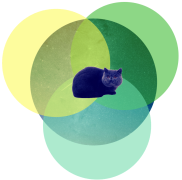Philoxenia is a word that comes from Ancient Greek. This literally translates to be “friends with a stranger”. Philo – Friend, Xenia – Stranger.
In Ancient Greece, hospitality in the same was held as a great virtue. Great honour was bestowed upon guests by the host. If a stranger was to appear on your doorstep in Ancient Greece, you were duty-bound to offer a bath before the meal and then a generous spread of food and drink. The guest in return, was obligated to be courteous, polite and not too difficult for the host.

Philoxenia Versus Xenophobia
The hallowed principle of Philoxenia originally turned sour in Homer’s The Iliad. When a guest in the house of King Menelaus of Sparta tried it on with the King’s wife, Helen – the fall out was huge. This transgression was so bad that it needed to be avenged by setting off the Trojan War. This led to a derogatory term, the opposite of Philoxenia (Friend with a Stranger) which turns out to be Xenophobia (Fear of a Stranger).

Let brotherly love continue. Do not forget to entertain strangers. For by doing so, you may have unwittingly entertained angels. Hebrews 13:1-2
Polish: Gość w dom, Bóg w dom

There is a similar expression in Polish, which still holds true as a cultural tradition today. Gość w dom, Bóg w dom. A guest in the house, God in the house. This expression in Polish speaks volumes about the kinds of hospitality you can expect as a guest in a Polish friend’s house. Nothing will be too much trouble. Likewise when a Polish friend comes over you can expect to roll out the red carpet for them.

Māori: Te inati o Tahu
Māori culture has a similar tradition of Philoxenia and hospitality.
Te inati o Tahu – She belongs to Tahu. A remark made when a female child is born and it is hoped that she will grow up to be a great leader, give feasts and make mats. A woman who excels in hospitality and welcoming guests into the whare (home).



Finally, the opposite of xenophobia revealed…if only this was the default
LikeLiked by 1 person
Yes exactly…hopefully it catches on and becomes the norm.
LikeLiked by 1 person
Beautiful article. I hope this crisis we are in now, will change our way of thinking.
LikeLike
Yeah I really hope so too. I think inevitably it will because we are all being shown what the governments of the world can do for their people when they absolutely have to. So from now on, when we demand change on things like the environment and keeping the air clean, remote work, remote education etc…we should have more chances of getting it right? At least that’s what I think will happen. People won’t stand for the same old shit anymore, which will be great 🙂
LikeLiked by 1 person
Hopefully, we dont fall back into old habits. We need to be strong. ❤🙏
LikeLike